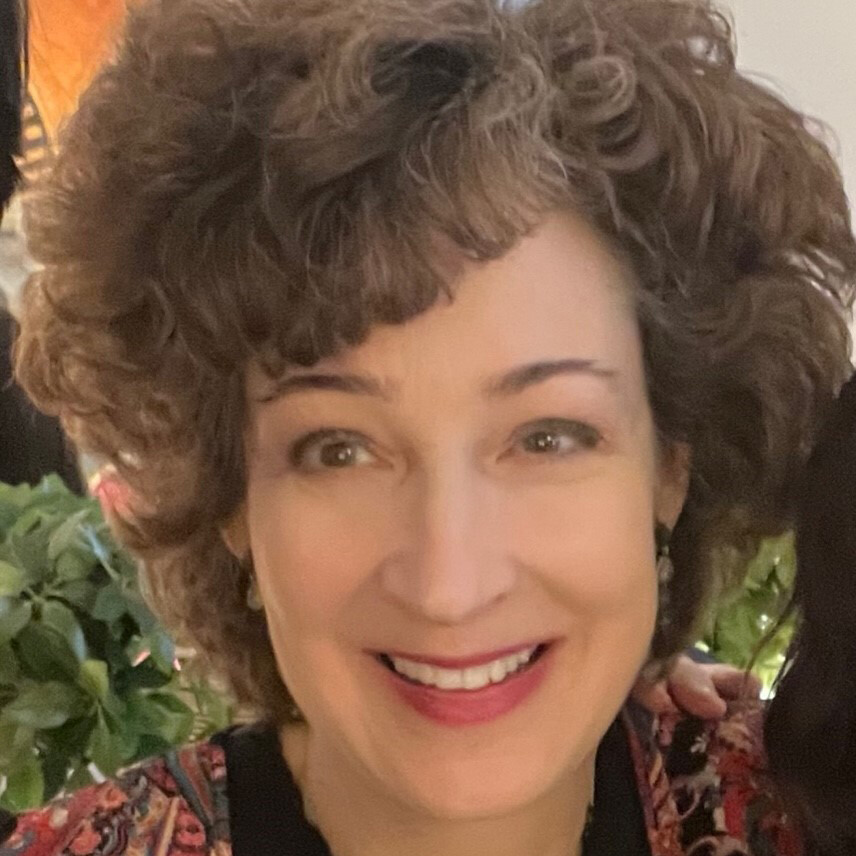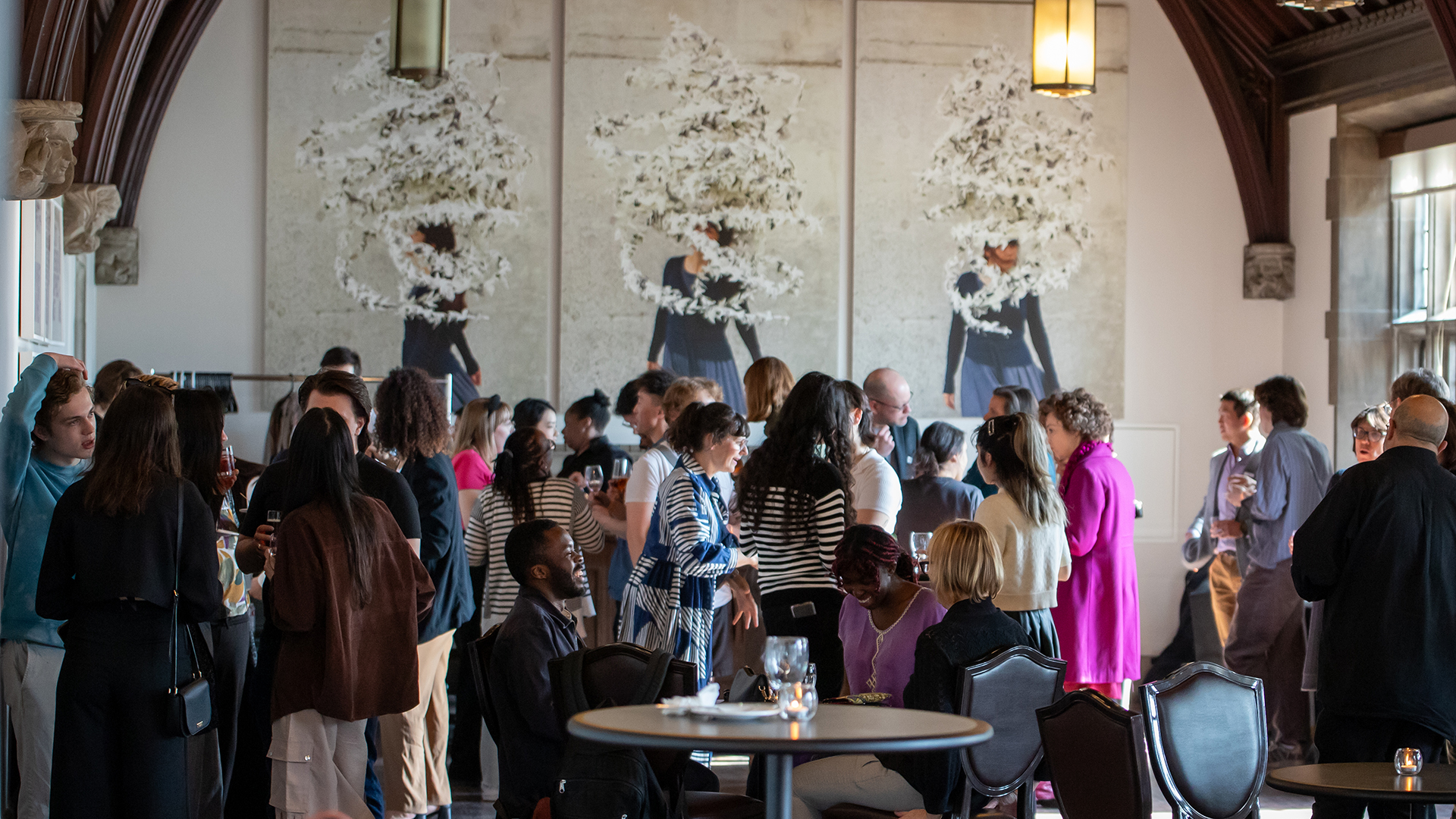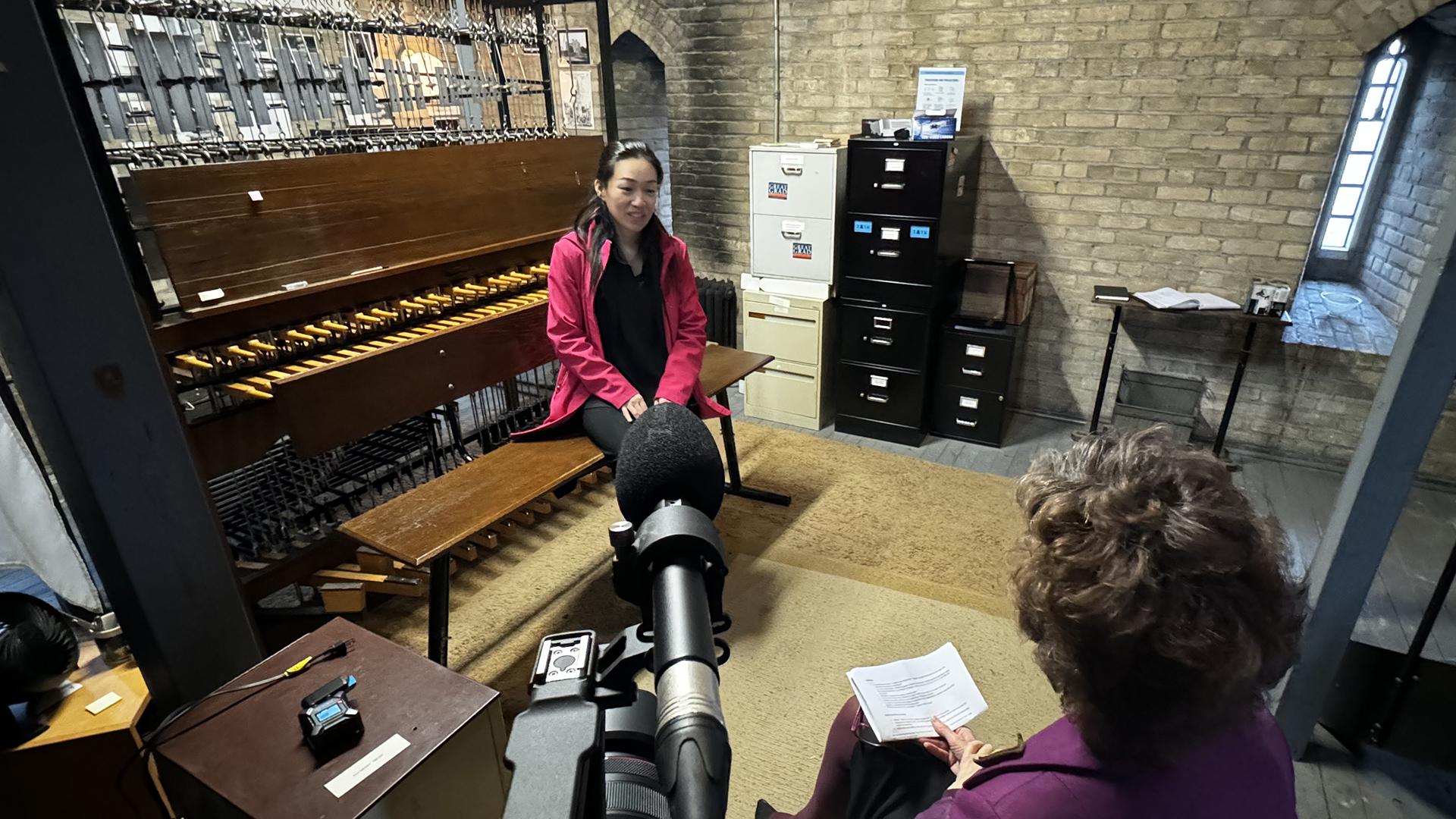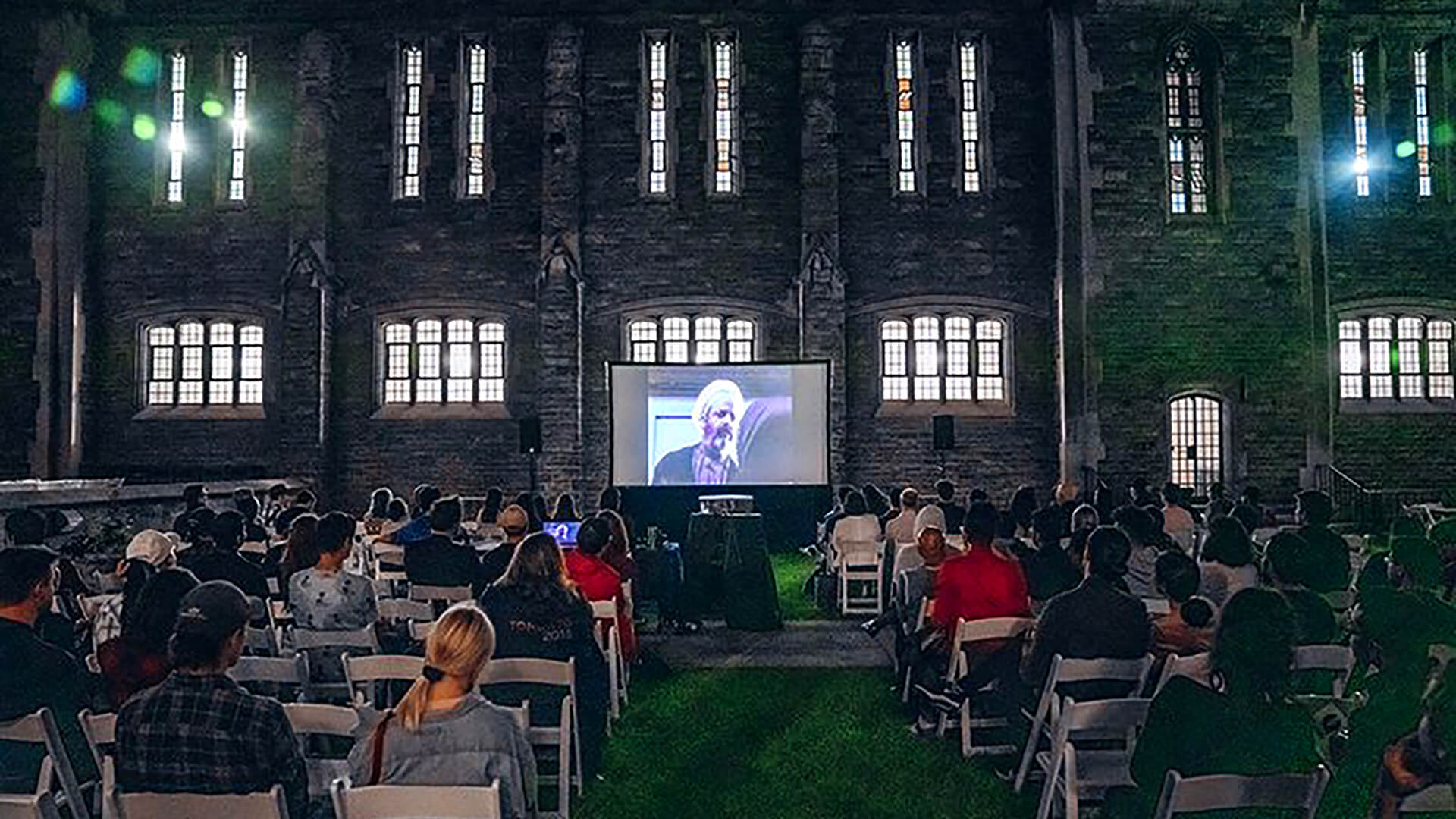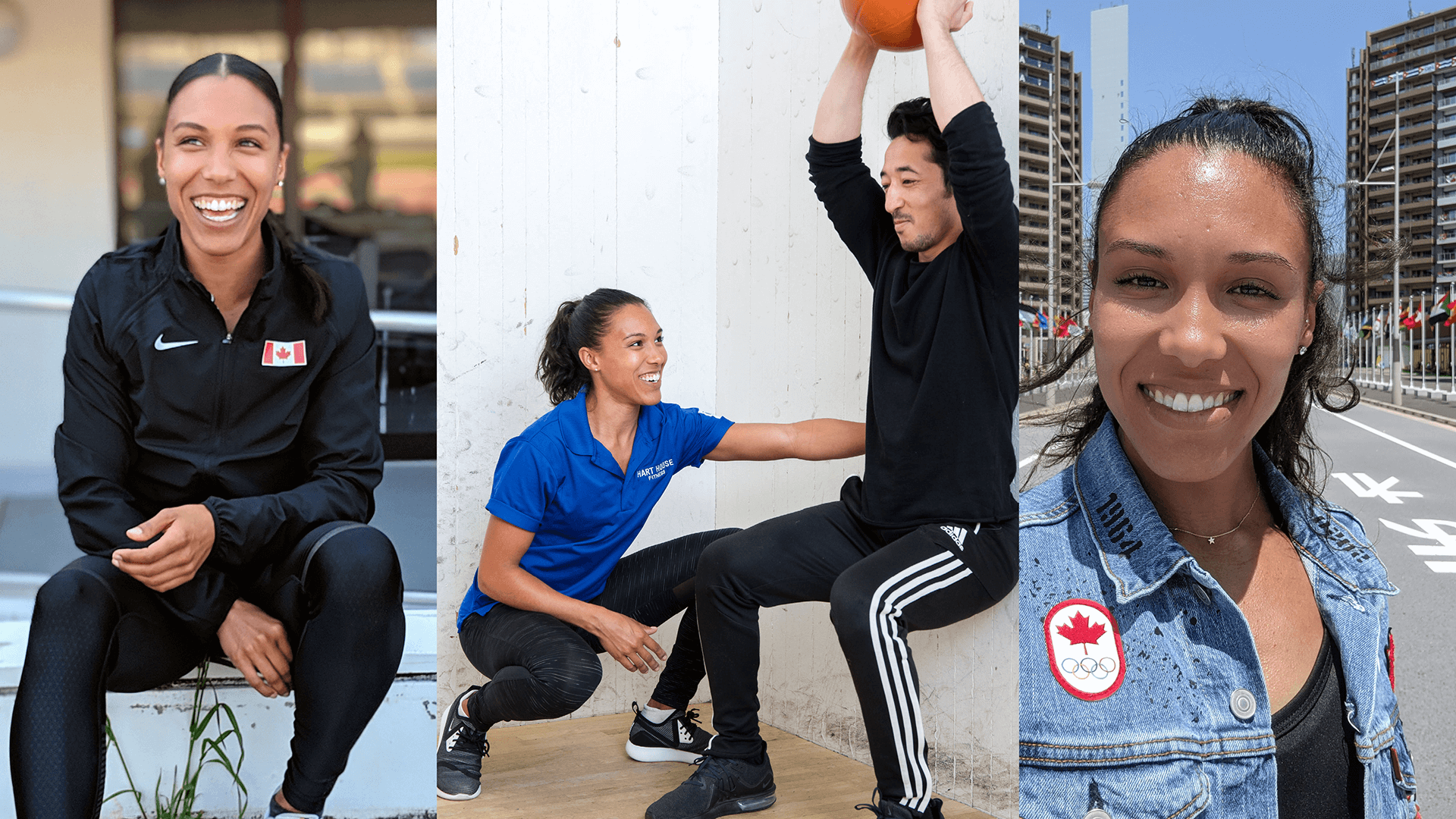
“In Conversation with the Warden” is a new feature of the Hart House Quarterly newsletter. In each edition, John Monahan, the Warden of Hart House, will engage in conversation with a different member of the Hart House staff community who has a fascinating perspective to share and story to tell.
This inaugural conversation features University of Toronto alumna Alicia Brown, a key member of Hart House’s Wellness, Fitness and Recreation team with over 15 years of experience in high-performance sport. Alicia is the current Canadian women’s 400m champion. She and the other members of the Canadian women’s 4x400 metre relay finished fourth at the 2020 Tokyo Olympics, held in 2021.
Alicia and John sat down to talk about hard work, resilience and the importance of working as a team.

JM: Hi, Alicia. It seems like forever since we’ve spoken. I'm really happy to talk with you today. You’ve had quite the summer!
AB: Thanks, John. Yes, it has been a whirlwind, but I really appreciate this opportunity to chat and catch up. I really appreciate everyone’s support.
JM: Alicia, I want to ask you about your experience at the Tokyo Olympics, obviously, but first, take us back: Can you tell us a little bit about how you first started in track? What was it that peaked your interest in track and has kept you interested?
AB: My family and I watched a lot of sports growing up. I have vivid memories of watching the Olympics. I wanted to be just like the athletes on TV. That’s where the seed was planted. When I was nine years old, I wrote a school assignment stating that I wanted to be an Olympic runner so it’s special that I can now call myself a two-time Olympian.

In Grade 10, I began running track for my high school. After watching some of my local races, Glenroy Gilbert, now the head coach of Athletics Canada, recruited me to join the Ottawa Lions Track & Field Club. This is when I quit playing competitive soccer and started training for track. I was then recruited to join the U of T Varsity Blues Track team in 2008 and started working with my current coach, Bob Westman, at U of T in 2009. The 2012 track season was influential for me. That’s when I witnessed so many of my training partners and friends make their Olympic debut. It helped me believe that I could also compete at the Olympics one day.
I realized that Olympians were not just icons on a pedestal; they were real people with flesh and blood just like me. All that separated me from them was lots and lots of hard work still to be done. Still, I figured, if they can do it, why not me?”
I went on to make my first Canadian National Team the following summer. As my belief grew, so did my actions and habits.
JM: Many of us watched you compete at the Rio Olympics in 2016. I happened to be there in person, as a matter of fact. You and your teammates on the women’s 4x400 metre relay team had a fantastic Games, and finished just shy of the podium, in fourth place. But that seems like eons ago. Who could have imagined that four years after Rio, the 2020 Tokyo Olympics would have to be postponed because of a global pandemic?! Take us back to last year. Obviously, it was tumultuous for everybody because of COVID, but for you it also meant delaying your pursuit of a dream you had been pursuing for almost your entire life. What was that like for you?
AB: Truthfully, it was devastating. In March 2020, during the height of the pandemic, Canada withdrew from the Olympics. I remember that moment so clearly. It was a Sunday evening. I received an email with the news, and my heart dropped. Although I understood and I agreed with the decision, I was left with a lot of difficult, unanswered questions about the state of my track career and how this decision would impact my training and the rest of my life. It had been almost four years of preparation for the Tokyo Games and it felt like it was all for nothing. I was heartbroken.
Later, we learned that the Olympics would be postponed until the summer of 2021. One might assume that the postponement would bring relief, but for me, it exasperated the pain I was already feeling. I was burnt out mentally, emotionally and physically, and the idea of training for another year under such an uncertain context was very challenging. It was an enormous emotional rollercoaster.
I race 400 metres. My race is about 51 seconds long and at the Olympics, we have one opportunity to get it right. The results leave you feeling really high or really low. I think that was part of the challenge of training during a pandemic. We didn’t have a lot of opportunities to get it right and everything we’d planned was out the window.
JM: What were some of the modifications you had to make to your training to get ready for Tokyo 2021?
AB: We needed to be creative and adaptable because all the training facilities in the city were shut for a large portion of the pandemic. I trained in the stairwells of my condo, jumped rope in my living room, did speed work on the pavement and ran intervals in parks. My coach also held strength circuits on Zoom so that we could have some training as a group.
It was a fight to find fitness equipment online. During the initial lockdown Hart House let me borrow a spin bike to help me maintain fitness at home. It made a huge difference on my mental and physical preparation.
Eventually, the Toronto Track and Field Centre at York University was granted a high-performance sport exemption, so my training moved up there once I was allowed. But I still didn’t have high-performance racing opportunities in Canada, so my training partner and I travelled to Florida and Texas in spring 2021. We spent three months there. It was nerve-racking because COVID cases where high in the U.S.
JM: It was the least we could do to let you use the spin bike; at the time it wasn’t doing anybody any good at Hart House! Besides, all of your training clearly paid off. In addition to qualifying for the Olympics, let’s not forget that you also won the 400 metres at the 2021 Canadian Track & Field Olympic Trials in Montreal. I don’t want that to get overlooked when we list your achievements. Am I correct?
AB: Yes, you are correct! It was my second national championship title for the 400 metres and it was a personal best!
JM: How much did that experience in Montreal bolster your confidence?
AB: It was a turning point; Montreal helped me believe I was ready for a really big performance.
I learned how physically prepared I was to perform better than I ever have. Peak performance is an interesting balance between being physically and mentally prepared. Both parts need to be in unison to run a personal best. It's also about trusting your body and your preparation.
JM: When you ran your personal best in Montreal, looking back on it, what did that represent for you? What had you learned by the time you stood on the podium in Montreal?
AB: I learned that there’s more than one way to the finish line. The 16 months leading into that race were drastically different than past training cycles and that worried me. But it taught me how important it is to be flexible, to not confine yourself to a box because at any moment that box could break. The broken box doesn't mean that you are broken, it simply means the box is broken. Perhaps you’ve outgrown the box. It’s important to be open to new ways of doing things.
In February 2021, for example, when I recognized that my mind and my body weren't on the same page, I started working with a psychologist. She helped remind me of the tools I had to help navigate adversity, and taught me how to stay present and focused. I was able to perform so well at the Olympic Trials and even better at the Olympics because of the self-work I did with my psychologist.
JM: So, how did you actually find out you were going to the Olympics?
AB: *Laughs* I was on my way to training at York on a Saturday morning. I knew the team would be announced at 10:00 AM. I sat there anxiously watching the clock. I happened to be above ground on the subway at 10:00 AM so I quickly pulled out my phone and found the email.
I just sat there, by myself, feeling all the emotions. I was trying so hard to act normal. I didn’t want to cry on the TTC but it happened anyways, just a little. Thank goodness I was wearing a mask.
JM: I often cry on the TTC … just for future reference. So, you wouldn't be the only one, but anyway I hear you. I understand. You wanted someone to share that news with you, right? Huge life moments like that are meant to be shared with the people we love the most.
AB: Yes, that’s it exactly, John. Once I got out, I called my parents and my partner, and we celebrated and cried outside the subway station together. It was a special moment.
JM: Okay. So you find out you’re on the Olympic team and that you’ll be one of seven Canadian women slated to potentially run in the 4x400 metre relays. Tell us about the six other women who went to Tokyo with you.
AB: I might be biased, but I think Canada has the sweetest, most hard-working group of women. We all really love and trust each other. I am so honoured to run alongside such a strong, influential group of women.
We had several relay practices during our preparation camp in Gifu, Japan, but we still didn’t know which women would run in the heats and the final if we made it that far. Coach Glenroy doesn't tell us who is running until the day of, or, if we’re lucky, the night before. So when I was selected to run lead leg, I felt proud and honoured.
Our performance in the heats was just good enough to qualify for the final based on our time, but we knew that our team could run a faster time. So before we ran the 4x400m final, we had a team meeting. We talked about how none of us – specifically, no one of us – needed to be a superhero in the final. Our thinking was rather than one of us carrying the burden of being seconds faster, we all just aim to be a little bit better and trust that a little bit better from everyone would be enough to have the performance we sought. That’s the team dynamic. And it worked: our time was almost five seconds faster than how we finished in the Rio Olympics, which is crazy! We knew we could run a three-minute-and-21-second 4x400 relay, we had been talking about it for the past five years. But, to stand in the Olympic stadium and look up at the clock to see it happen in real life (3:21.84), that was amazing. We shocked ourselves *laughs* but it was also a challenging moment for us as a team.

JM: I didn't realize that. That's wild. Five seconds is a lifetime when you're running a sprint event. Really, that's amazing. And if I’m not mistaken you ran another personal best in your leg of the race, too.
AB: Yes, I split 50.75 seconds! That’s just over a second faster than how I performed at Olympic trials.
JM: Can I tell you my observation? I mean, apart from watching the race and being thrilled at how brilliantly you performed, I loved watching your media opportunities with your teammates. What I observed was how much, even in the moments between races and after the final, you were clearly a team, encouraging each other, supporting one another. Regardless of your time or your placement, it just seemed like the four of you were the most supportive quartet of human beings on the face of the planet, and I wanted to be best friends with all of you. What did that feel like to you?
AB: It makes me so happy to hear you talk about the team that way. We didn’t have friends and family in the stands, so it makes me happy to know that Canada was able to feel what we were feeling, that we were all connected even though we were across the world from each other. I would describe those moments the same way you just did, John. What you saw on TV was real and authentic.
The interview following the final was challenging. We finished fourth and there were a lot of mixed emotions. We were proud because we ran a fast time – second fastest in Canadian history – yet heartbroken because it just wasn't enough to bring home a medal for Canada.
It was important that we did what we could to support each other as a team. I recognized how challenging that moment was for one of my teammates. I knew that it was important for me to step up and support her because she would do, and has done, that same thing for me.
The camera only picked up certain moments of it, but we all shared those feelings.
JM: So, Alicia, you have been excelling as an elite athlete for years now, and you're a veteran of two Olympic Games. Did you have a role to play with your teammates as the voice of wisdom and experience?
AB: I’d say, yes. I don't know if that was a natural thing or if it was something I chose to step into.
Because this was my second Olympics, I knew what to expect. I felt more confident as a person and as an athlete. I felt it was important to share some of the things I’d learned to help support the younger athletes. There were things I wish I had known that no one prepared me for during or after my first Olympics in 2016 so I wanted to be able to give that to others.
JM: Knowing what you know now, what would you go back and tell your 20-year-old self or other 20-year-olds, such as the students we work with at Hart House?
AB: Don’t compare yourself to others. I used to Google other athletes. I’d look at their stats to understand their progression. Those searches left me feeling like I wasn't good enough. I can see, now, that wasn’t the case.
My progression didn't look like those other girls I looked up to when I was 18 but I found my own path to greatness.
I would also add that when you start to believe in your process, that’s when you’ll start to see change and big improvements. That’s when anything becomes possible.
JM: How has it been working at Hart House and training for the Olympics? How do you do it all?
AB: It was really hard, but I love what I do. I love the way I'm able to contribute to Hart House and undertake training. I love connecting with other offices and performing. These are all important pieces of my life. I had to ask for a lot of help and flexibility to make it work.

JM: You had to have so much self-discipline to prepare for the Olympics, particularly during COVID. So tell me: Since Tokyo, what has been your biggest indulgence?
AB: I love food. Experimenting with food and drink has been so much fun. I’ve also been catching up on sleep. I didn’t know how much I needed those things until I was able to do them.
JM: And Alicia, we didn’t know how much we needed the excitement of rooting for one of our favourite colleagues to get us through a difficult summer. It has been a challenging year at Hart House and everywhere else because of COVID, but you were such an inspiration for everybody here. Everybody at Hart House was on “Team Alicia” this summer, so as the Warden, I want to thank you for giving us something to cheer for. I really mean that.
AB: Thanks so much, John. The support I’ve received has meant so much to me.
